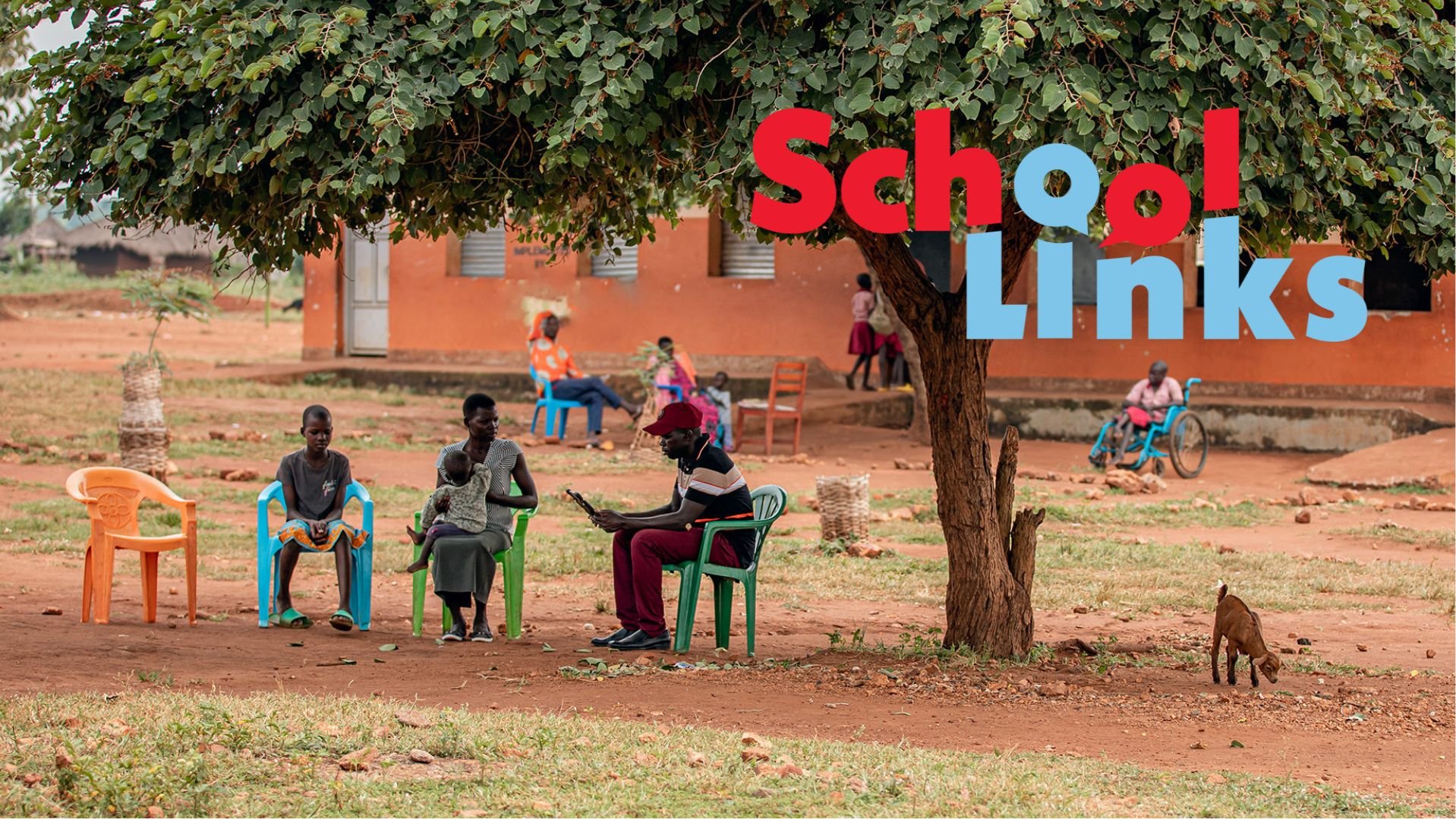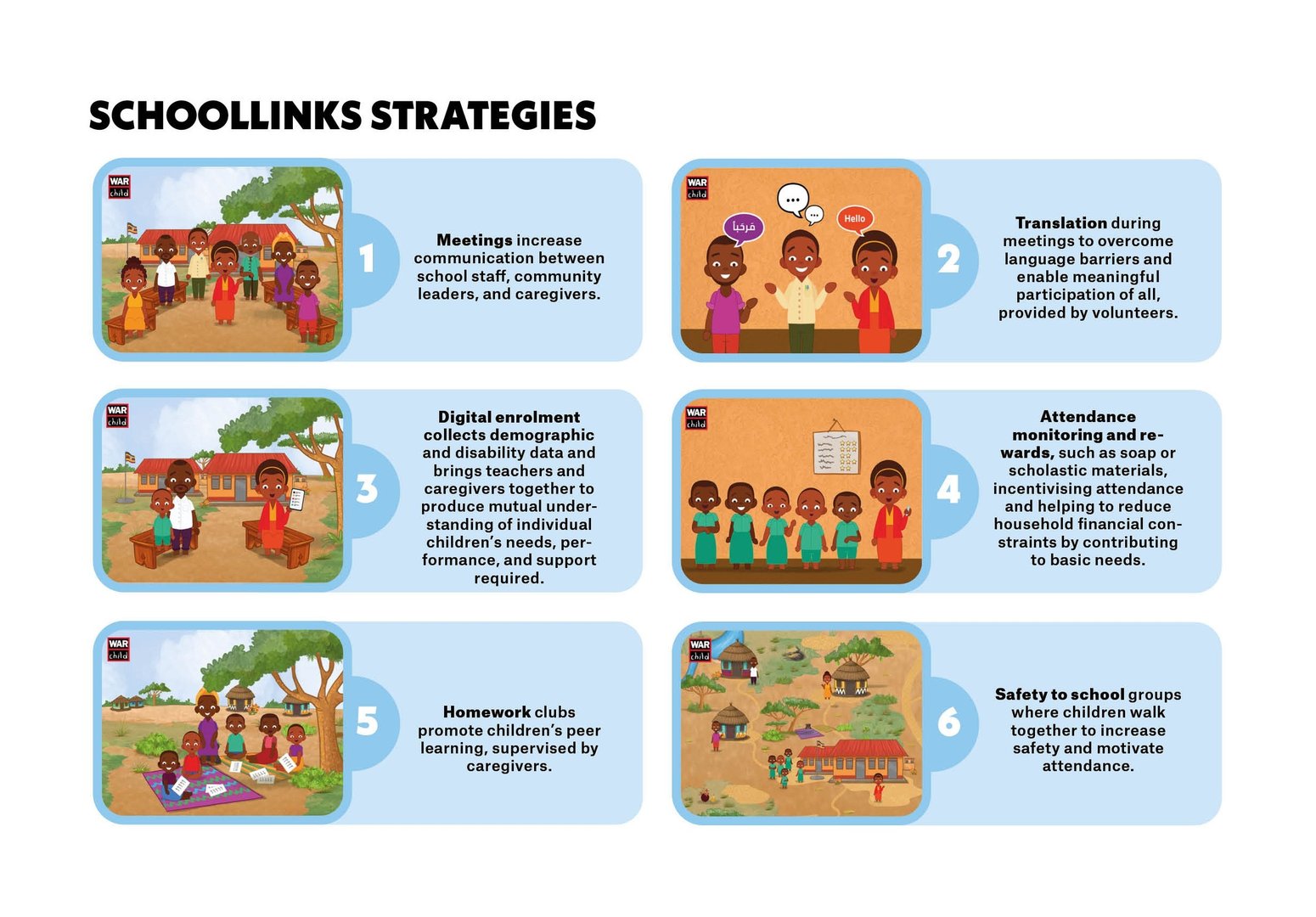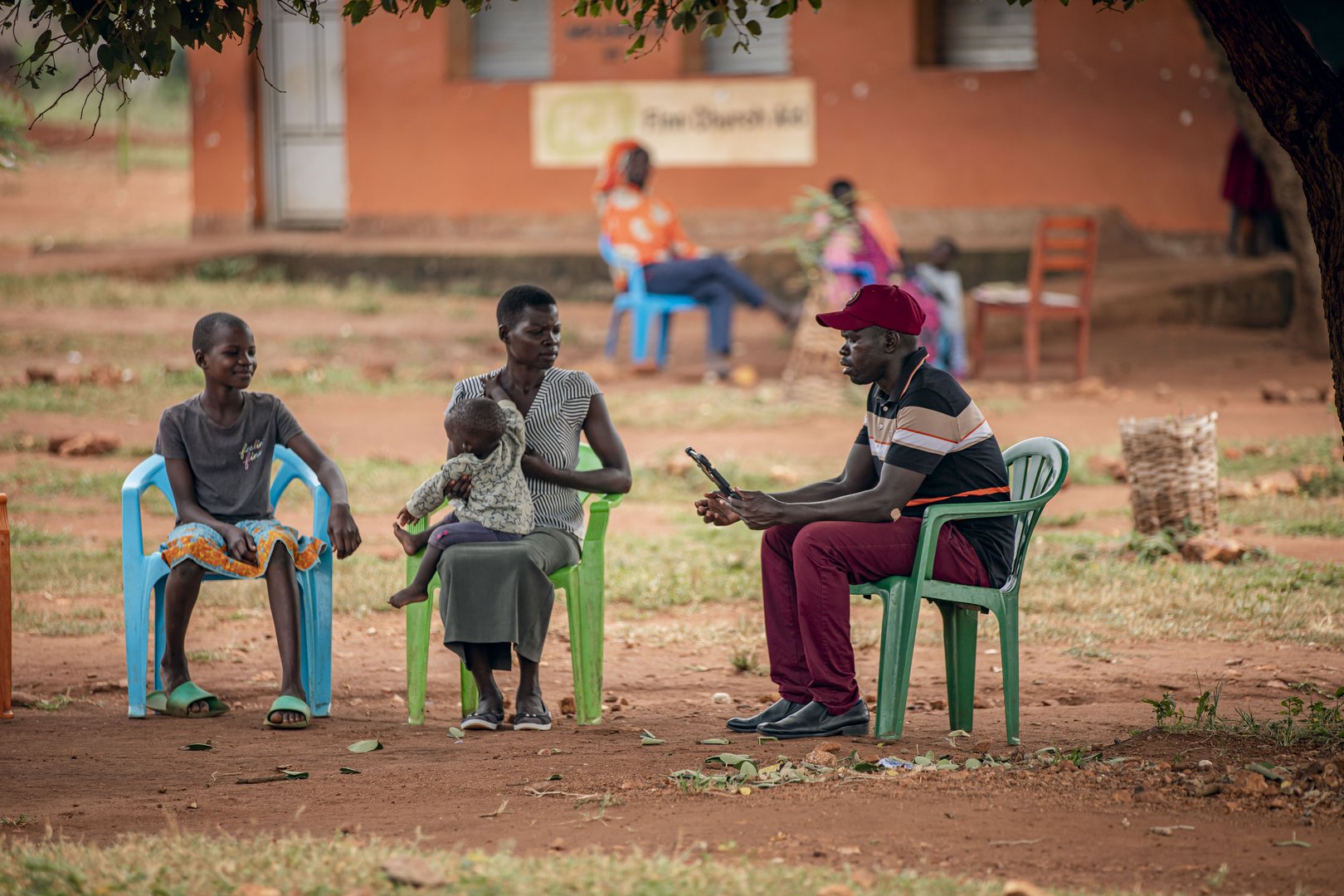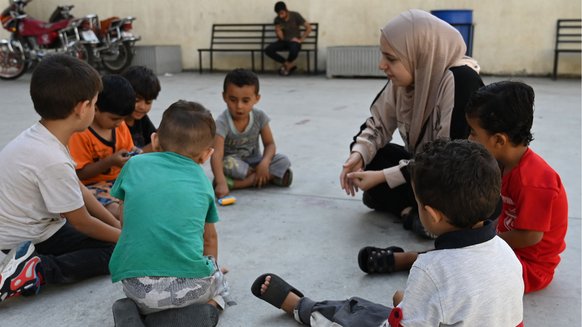SchoolLinks

SchoolLinks Strategies
SchoolLinks tackles issues of low school enrolment, attendance, and retention through a series of simple and complementary strategies that are community-driven and designed to be inclusive, and sustainable in any context.
- Meetings: SchoolLinks fosters communication between school staff, community leaders, and caregivers through regular meetings. This helps identify and address barriers to education, ensuring everyone is invested in supporting children’s learning and development.
- Translation: SchoolLinks ensures that language barriers do not hinder participation by providing translation services during meetings. This valuable support, provided by dedicated volunteers, enables meaningful participation of all community members, regardless of their background.
- Digital Enrolment: SchoolLinks utilizes digital enrolment to gather essential information about each child, including demographic data and any disabilities. This process brings teachers and caregivers together to develop a shared understanding of individual learning needs, performance, and required support, ensuring that no child is left behind.
- Attendance Monitoring and Rewards: SchoolLinks encourages regular school attendance by rewarding children with high attendance rates. The rewards include basic needs such as soap or scholastic materials. This not only motivates children but also helps alleviate financial constraints that can hinder their education.
- Homework Clubs: SchoolLinks establishes homework clubs that provide a safe and supportive space for children to learn together, supervised by dedicated caregivers. This fosters peer learning and provides additional academic support, leading to improved performance and higher retention rates.
- Safety to School: Acknowledging that safety is a crucial factor in school attendance, SchoolLinks organizes safety to school groups where children walk to school together. This initiative provides children with a sense of security and increases their motivation to attend school regularly.

Developing SchoolLinks: A Community-Driven Approach
SchoolLinks was initially developed across four refugee settlements in Uganda together with caregivers, teachers, community leaders, and out-of-school children and youth. This participatory approach ensured that SchoolLinks was grounded in the communities' needs and priorities, enabling everyone to actively participate in creating solutions to the educational challenges they faced.
The community-driven approach was then piloted in a school within the Bidibidi refugee settlement, where it demonstrated promising early results, including increased enrolment among previously out-of-school children. Further refinement and validation came through a feasibility study in the Oruchinga refugee settlement, which found SchoolLinks to be a contextually relevant, inclusive, and sustainable intervention.
Current Research Agenda: Sustainable Adoption and Scaling SchoolLinks
SchoolLinks' initial development was made possible through the generous support of the Global Partnership for Education Knowledge and Innovation Exchange (GPE KIX) and the International Development Research Centre (IDRC), which funded War Child Alliance’s multi-year global research programme "Bridges to impact through innovative educational technology: Forging links between policy, research, and practice".
This project focused on adapting and scaling education technology solutions in conflict-affected and low-resource settings. It was instrumental in the creation and initial testing of SchoolLinks in Uganda. We hypothesise that consistent attendance will increase learning, and reduced dropout numbers will increase cost-effiency in education. You can read more about the findings of this research and impact of SchoolLinks here.
Building on this strong foundation, SchoolLinks has entered into an exciting new phase of further development and evaluation. With continued support from the GPE KIX and IDRC, and in partnership with Stellenbosch University, the research programme “Advancing Children's Continued Education through Sustainable Scaling (ACCESS)” aims to directly support the evaluation of SchoolLinks in South Sudan, with an emphasis on cost-effectiveness and sustainability. Additionally, it seeks to create a pathway for the sustainable adoption of SchoolLinks, and other education innovations, into education systems in fragile and conflict-affected contexts.
This ongoing research also seeks to answer critical questions about the adaptability and scalability of SchoolLinks. Specifically, the research aims to determine what adaptations are needed to ensure the programme remains contextually appropriate, inclusive, and sustainable in diverse settings. Additionally, it explores the cost-effectiveness and impact of different implementation designs, providing valuable insights for maximizing the efficiency and effectiveness of SchoolLinks in various contexts.

Our partners

Contact us:
Are you curious to know more about SchoolLinks and its current research agenda? Please contact Jasmine Turner, lead researcher for SchoolLinks.
